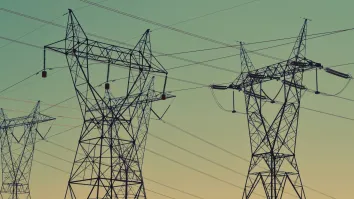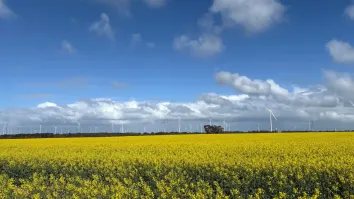Concept for “Three Articles in One” on our Energy Market: Transition, Merit Order, Tipping Point (Part 3)
By Adriaan KampA free market where the present lowest cost fuel solution wins. per se and per definition.
Let me explain. And I grossly simplify here, but that is needed to share this perspective and my doubts.
If I were to ask you what form of strategy you would prefer, we, as a society would embrace for the next decades on energy.
And I would give you the choice between two options:
Option 1: A strategy of scarcity
Option 2: A strategy of abundance
I guess that the majority of you would opt and vote for Option 2: A strategy of abundance. Well- let me now perhaps surprise you a little.
Option 1: A strategy of scarcity is our present free market approach to Energy and Energy Transition.
It works on the basis that society uses and consumes the lowest cost fuels first (coal, gas, oil), until they become so expensive that their utility either cannot be afforded and/or alternatives come into play.
In the strategy of scarcity, tomorrow is always a little more expensive and a little bit less than today.
The cost of the natural resource, and in view of its nature, increases over time. The quality (availability, reliability) of the natural resource (or energy commodity) decreases over time..
And now there is a little frightening reality, here - too: The increment in cost, or the increment in scarcity of the natural resource is not necessarily a linear function over time, but can actually be quite exponential.
So, by opting for a free market approach to our present energy and energy transition challenge- parties put out the drive for development of alternatives, risk to wait too long with supplements, and are faced- over a long period of time- with a diminishing return of the utility.
The cost of energy will be creeping-up for the consumers for quite some time. Further segregating and polarizing between the Have's and have not's. The reigning energy sector and fuel-of-choice will attract and consume most cash for maintaining the present status quo.
So, by now- you may be a little more interested in Option 2: A strategy of abundance -
How would that work?
In this option, parties in the market recognize the nature of the natural resource industry- and start to prepare for a balanced and responsible transition- over time.
Parties recognize that they can maintain the best energy infrastructure and protect the longest value to the consumers by blending the value of the present reigning fuels (coal, gas, oil) with that of the incumbents (solar, wind, bio, geo).
By leveraging the spare and flex capacities of a gas and oil infrastructure (and storage) with the intermittent nature of sun and wind- the energy sector is able to unlock and present consumers with a long-term price and quality advantage and preserve the availability of the energy product.
By slowing-down on pumping-up oil and gas,- and invest in a large scale in energy saving and new fuel options, parties are able to push-out in time the prognosed exponential value and cost increment of the natural resources.
Both the conventional fuels, as well the new fuels, remain for a long time- abundant and available.
Without any major risk, threat or doubt.
Predictable.
Giving the market and its consumers the stability and foundation it so desperately seeks and longs.
Tipping Point
Well, as you have understood by now- I have some reasonable doubts whether the present reliance in the West on the free market approach in the energy sector, and as a primary source for transition, is strong and good enough for today and tomorrow.
This approach, or -as I see it- this strategy of scarcity may (or actually will) lead to a scenario - whereby the strongest and wealthiest will maintain and continue to enjoy access to the best energy resources.
The weaker or poorer elements in our society, or among the nations, will have to scramble for the second best place or worse will have to do without. As long as alternatives are not yet strong enough to make the difference.
This is true in our transportation sector where oil is the reigning fuel of choice (in factwe have hardly an alternative play working here in scale right now- if it were not the invention of the electric car), and this is true for the electricity and heating/cooling market at home and at our offices (where coal and gas are the workhorses of our society).
I favour a strategy whereby we take stock of what works best today, but where we also include the second and third best contenders of today and tomorrow in the game and which can become the leaders of tomorrow.
A strategy where we re-design the present reigning business models of centralized, largescale produced and distributed energy to a much more blended form whereby local energy saving, storage and production is shared and blended with the existing central backbone.
A strategy whereby the roll-out of electric cars infrastructure becomes a public decision and a license to operate for the present reigning holders of our transportation fuels.
In short: a strategy of abundance.
Now- this strategy does not come by itself.
The market clearly needs some help- and in order to reach a tipping point- for it to move..
Not a tipping point in technology, but a tipping point in "frame of mind" (mindset) and aspiration for so do-ing.
The biggest hurdle today in realizing a more advanced and smart energy system is not technology or innovation (as some people and policy makers still continue to believe or state)- but is actually quite mundane and even a little bit ugly, It's about money.
It's about the profit margins the natural energy resource holders, banks and operators see in the present and future market.
And it's about the money required in order to invest in new infrastructure and to writeoff the existing infrastructure.
Now - here is what we may need to focus our attention on, whenever we are in dialogue with and face the boards and directors of our leading energy companies and sectors:
Who are you serving?
Are you a steward over our community, ecology and economy?
Have you done all what you could do in order to preserve the burning of fossil fuels and create the conditions for smartness in the consumption of our energy system?
Are you willing to invest in energy saving and energy transition measures if I grant you new access to sell gas into my community or market?
And perhaps remembering my earlier blognotes on "Form follows Function".
Great if we can have our leading oil and gas companies and utilities again working as cooperations serving the community needs and blending local business and community interests with sustainability and economic targets.
I think we can.
I think we are nearer to this tipping point as some may believe.
As professionals inside and outside the industry start to see and want to make that difference.




















 Advertise
Advertise





